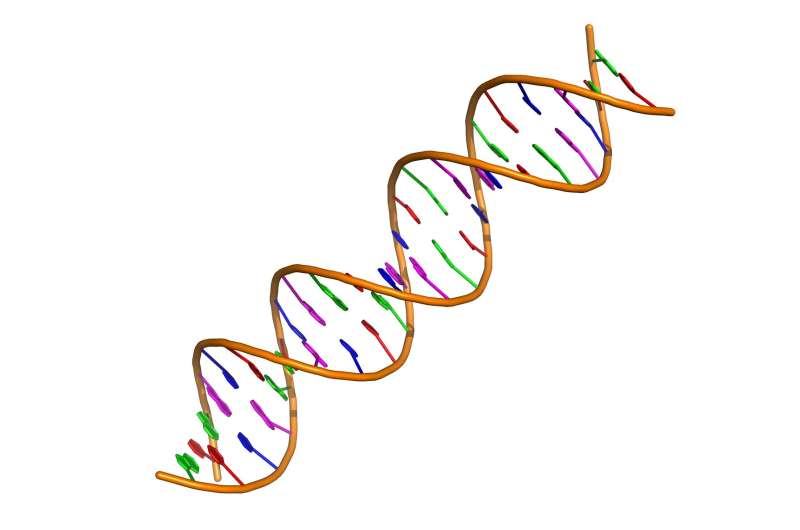Identifying DNA repair genes holds promise for improving cancer treatment

A new way in which cancer cells can repair DNA damage has been discovered by researchers at the University of Birmingham.
These new findings shed new light on how cancer cells react to chemotherapy and radiotherapy, and also uncover a new way in which cancer can become resistant to targeted treatments. These insights may help clinicians decide on different cancer treatments that can be more targeted to specific patients.
Repairing damage to DNA is vital for cells to remain healthy, and to prevent diseases like cancer from developing. Understanding how DNA repair works is crucial to better understand how cancer develops, and also how anti-cancer treatment such as radiotherapy and chemotherapy can be used effectively to induce DNA damage that kill cancer cells.
In the study, published today in Molecular Cell, a team of researchers in the University's Institute of Cancer and Genomic Sciences pinpointed two proteins that had not previously been identified in the DNA repair process.
Called SETD1A and BOD1L, these proteins modify other proteins called histones which are bound to DNA. Removing these two proteins changes how DNA is repaired, and makes cancer cells more sensitive to radiotherapy. Loss of SETD1A and BOD1L also makes cancer cells resistant to certain anti-cancer drugs called PARP inhibitors.
Lead author Associate Professor Martin Higgs explained: "This is the first time that these genes have been directly linked to DNA repair in cancer. This research has the potential to change how cancer patients are identified for treatment and also how they become resistant to different drugs, which will improve treatment efficiency as well as patient outcomes."
The team hopes the work could eventually also lead to new inhibitors being developed that would allow clinicians to re-sensitize cancers that have become resistant to certain therapies.
More information: H3K4 methylation by SETD1A/BOD1L facilitates RIF1-dependent NHEJ, Molecular Cell (2022).

















